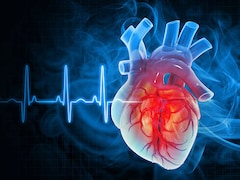In this article, we explore how the food you eat can keep your liver functioning optimally and protect you from potential long-term damage.

Understanding How Nutrition Can Prevent Liver Diseases
The liver, a vital organ responsible for detoxification, metabolism, and nutrient storage, is highly sensitive to lifestyle choices, especially diet. Poor eating habits can lead to fatty liver, cirrhosis, and other chronic liver conditions. Fortunately, the right nutrition can play a powerful role in preventing liver diseases and improving liver function. According to the World Health Organisation (WHO) and the American Liver Foundation, balanced nutrition can significantly reduce the risk of liver-related issues. In this article, we explore how the food you eat can keep your liver functioning optimally and protect you from potential long-term damage.
How nutrition can promote liver health
The liver processes everything you eat and drink, filtering toxins and supporting digestion. A nutritious diet lowers inflammation, reduces fat accumulation, and ensures your liver doesn't get overburdened. The National Institute of Diabetes and Digestive and Kidney Diseases (NIDDK) emphasises that dietary changes can prevent liver disease progression and even reverse some early liver damage. Here are ten nutritional tips to help prevent liver diseases.
1. Choose a balanced, whole-food diet
Focus on fresh fruits, vegetables, whole grains, and lean proteins. These foods support liver detoxification and reduce oxidative stress. The WHO recommends limiting processed and refined foods which burden the liver.
2. Cut down on sugar and sugary drinks
High intake of sugar, especially fructose, is linked with non-alcoholic fatty liver disease (NAFLD). Avoid sodas, sweets, and processed juices that spike fat buildup in the liver.
3. Limit saturated fats and trans fats
Fried foods, bakery items, and fatty cuts of meat increase liver fat and inflammation. Switch to healthy fats like those in olive oil, nuts, seeds, and avocados.
4. Add antioxidant-rich foods to your meals
Berries, citrus fruits, leafy greens, turmeric, and green tea contain antioxidants like vitamin C and polyphenols. These reduce liver inflammation and help in cell regeneration.
5. Stay hydrated with water
Water is essential for flushing out toxins. Aim for 2–3 litres a day, especially in hot climates. Herbal teas and coconut water are good natural hydrating options too.
6. Avoid excessive alcohol intake
Alcohol is a major cause of liver damage. Even moderate consumption can increase the risk of liver disease. The CDC advises no more than one drink per day for women and two for men.
7. Maintain a healthy weight
Obesity is a risk factor for fatty liver. Balanced eating combined with regular physical activity helps maintain liver-friendly weight and reduces fat deposition in liver cells.
8. Incorporate fibre-rich foods
Fibre regulates digestion and reduces the fat your liver stores. Include oats, barley, lentils, beans, apples, and vegetables to meet your daily fibre needs.
9. Avoid overuse of supplements and medications
Unregulated supplements; especially those claiming to ‘cleanse the liver', may harm more than help. Always consult your doctor before taking liver supplements.
10. Watch your salt intake
Excess sodium can cause fluid retention and increase liver workload. Avoid packaged snacks and read labels for hidden salts.
Good liver health begins with what's on your plate. As global health agencies stress, eating nutrient-dense, balanced meals and avoiding excess sugars, fats, and alcohol can reduce your risk of liver disease significantly. By adopting liver-friendly eating habits, you're not just supporting this vital organ but also enhancing your overall health and longevity in the long run.
Disclaimer: This content including advice provides generic information only. It is in no way a substitute for a qualified medical opinion. Always consult a specialist or your own doctor for more information. NDTV does not claim responsibility for this information.
DoctorNDTV is the one stop site for all your health needs providing the most credible health information, health news and tips with expert advice on healthy living, diet plans, informative videos etc. You can get the most relevant and accurate info you need about health problems like diabetes, cancer, pregnancy, HIV and AIDS, weight loss and many other lifestyle diseases. We have a panel of over 350 experts who help us develop content by giving their valuable inputs and bringing to us the latest in the world of healthcare.














